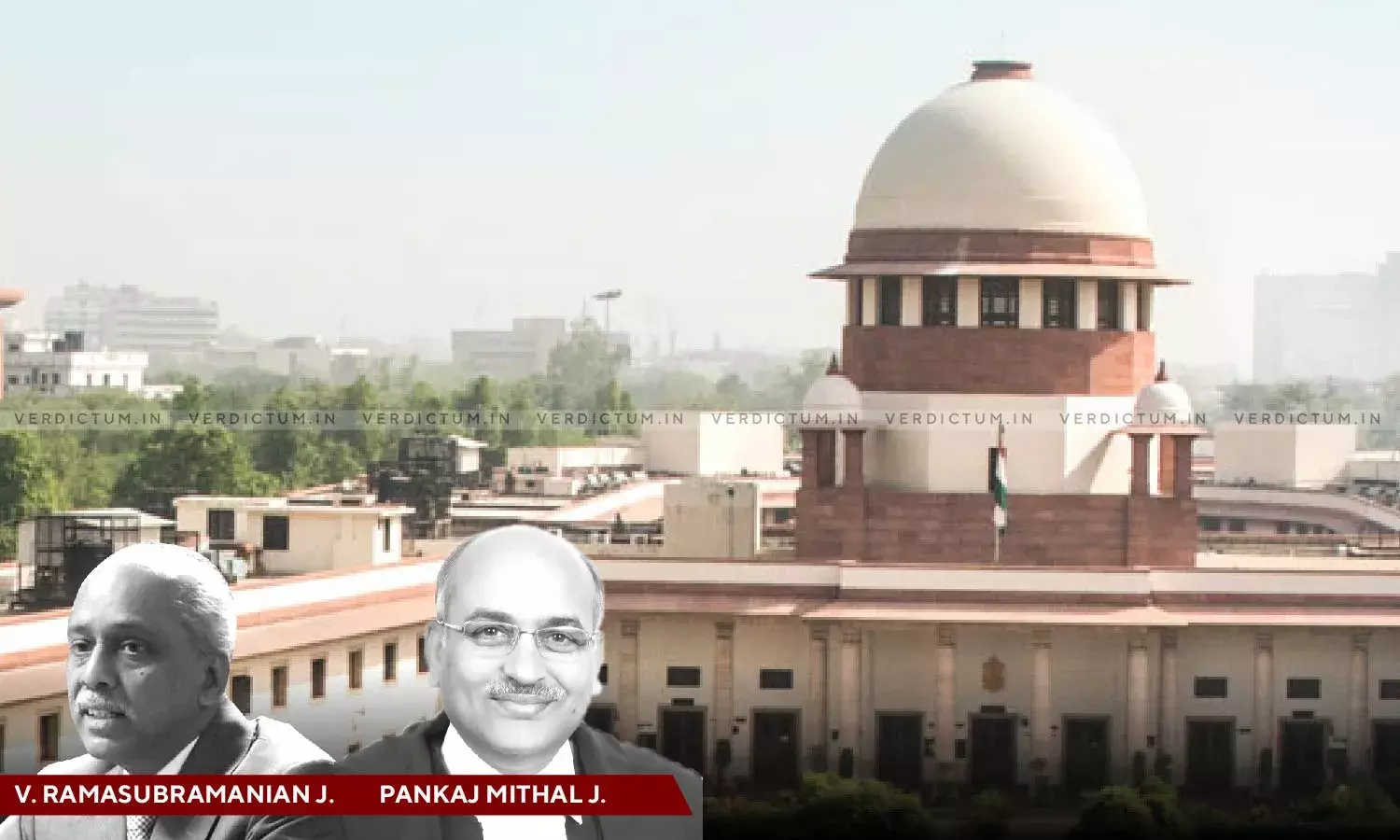Kidnapping Case| SC Sets Aside Conviction Of Man Who Suffered Ordeal Of Pendency Of Criminal Prosecution For 26 Years

The Supreme Court has set aside the conviction of a man, accused of kidnapping the respondent and marrying her against her will, after suffering the ordeal of pendency of the criminal prosecution for 26 years.
The Bench of Justice V. Ramasubramanian and Justice Pankaj Mithal while setting aside the conviction, said that the Court was not in favour of extending the appellant’s agony any further.
“The entire evidence on record in no way reflects that the appellant had any intention to kidnap PW2 for the purpose of marriage. They appear to have gone together to various places and may have married....The impugned judgment and orders of the courts have completely failed to take into consideration the above aspects of the matter in holding the appellant to be guilty of the offences solely on the basis of the statement of PW2, which as described above is not sufficient to prove the appellant guilty.” the bench added.
Advocate Shanthkumar V. Mahale appeared for the appellant and Advocate Shubhranshu Padhi appeared for the respondent.
In this case, the appellant was convicted for offences punishable under Sections 366, 342 and 506 of Indian Penal Code, 1860 and was sentenced to rigorous imprisonment for a period of 3 years, 3 months and 2 years respectively. The appellant preferred an appeal before the High Court, which was dismissed. Aggrieved of the said order, the appellant approached the Apex Court.
The Apex Court noted that both the respondent and appellant knew each other from before and marriage proposal of appellant was rejected by the family of the respondent as he was not in a government job.
It further noted that the respondent remained with the appellant for about 20/23 days and their marriage was performed in the presence of family members of the appellant. Moreover, she was not at all maltreated by the appellant rather he behaved with her in a most decent manner. He never touched her, beat her or troubled her in any manner.
“Her statement compels the court to draw a legitimate inference that as she had known appellant, she herself may have managed to elope with him and it is for this reason that the appellant never misbehaved with her or took advantage of her company, rather helped her in getting her connected with her family members.”
The Apex Court also noted that there was no evidence either to prove that she had resisted the marriage or was not happy in the company of the appellant and said that “He has already suffered the ordeal of the pendency of the criminal prosecution since 1996 and as such, we are not in favour of extending his agony any further.”
Accordingly, the appeal was allowed, and the conviction and sentence were set aside.
Cause Title- K.H. Balakrishna v. The State of Karnataka
Click here to read/download the Judgment

